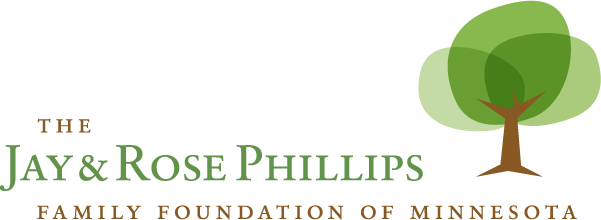By Amanda Janssen, Executive Director Rêve Academy
What happens when students are trusted to navigate their own learning?
That’s the question we asked Phillips Family Foundation when we proposed the testing of a new teaching methodology in North Minneapolis. Luckily, they were just as interested in the answer as we were.
But I hadn’t expected to see investment-ready business ideas after two days of work, such as:
• A business accelerator that specializes in developing and supporting mom and pop stores on the Northside
• A furniture refurbishing service that keeps old furniture off the street and helps neighborhoods embrace sustainable consumption
• A community center that collects all the resources provided in North and serves them up under one roof
These ideas emerged from students in a mini-course at North Community High School—our first step in testing the methodology. It’s clear that the course was less of a catalyst for student entrepreneurship and instead a much-needed channel for ideas they had already been dreaming of.
When asked what attracted her to this course, student Aziza said, “I actually want to start my own business and I’ve kind of got it going, so I thought this would help me. I want to get it going successfully so it doesn’t crash within the first couple of years like some businesses do.” Another student said, “I know you have to do a lot of planning, a lot of networking. But in Minnesota, how do you navigate? Who’s your audience and how do you get to that audience?”
The Heart of Emergent Teaching
As the course instructor, I had to not only address those questions, but do so using the Emergent Teaching Methodology©. Which is to say: I didn’t answer the questions at all; students did.
Students respond to the prompt “How might we create an even better North Minneapolis?”
That’s because Emergent doesn’t ask teachers to be the sole holder and deliverer of knowledge. Instead, it sets up an atmosphere of student-driven collaboration and inquiry. For some subjects, teachers may be learning the content for the first time alongside students.
But no matter the subject area, the model is one of cognitive apprenticeship: with the teacher giving students space to digest content, ask questions of themselves and others, and perhaps go down the “wrong” path while pursuing knowledge. This frees the teacher up to embody distinct roles that encourage students to take control of their learning.
So…did it work?
Promising Early Results
While the mini-course wasn’t taught using exclusively Emergent methods, we did test several Emergent techniques and captured students’ reactions to them.
The results were overwhelmingly positive:
- 95% said “I wish I had more opportunities to do this kind of work.”
- 77% said “This work is making me think in new ways.”
- 100% said, “Even if this work gets hard, I will want to keep going.”
- 100% said “I feel like I have a voice in shaping this project.”
Most surprising of all? Day 2 is when Emergent Teaching Methodology© was in use. That was also the day of student presentations, and we assumed that the stress of public speaking would lead to lower scores. But just the opposite happened—on Day 2, students reacted more positively than they had the previous day.
In so many ways, students are telling us that they’re ready for more: more creativity, challenges, and above all, agency.
They also want more from adults. Students said in their educational spaces, adults should do more of the following:
- Create room for students to speak
- Recognize that everyone learns differently
- Have firm and high standards
- Give more constructive criticism
- Include them in decision making
What’s Next For Student-Driven Learning in North Minneapolis?
North High’s NSTEM and Advanced Academics Coordinator Torrey Lau summed it up when she said, “The students were brave and took a leap out of their comfort zone for these two days. They were asked to do very adult-type learning, and they responded professionally and creatively.”
We want to prove that this wasn’t a fluke. With the support of Phillips Family Foundation and North Community High School, we plan to pilot a research classroom in Fall 2017 that rigorously measures the outcomes of our methodology. Please stay tuned for results, and if you think your school might be a good fit for this approach, feel free to email me directly at Amanda (at) reveacademy (dot) org.
Amanda Janssen is Executive Director of Rêve Academy, a Minneapolis-based nonprofit whose mission is to help students dream with direction by providing pathways to digital careers. Amanda has a background in national and international education contexts and loves to engage students in new ways.




